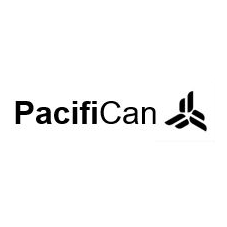
PacifiCan — Economic Development Initiative (EDI)
At a glance
- No Condition
- Unspecified
- Information and cultural industries
- Arts, entertainment and recreation
- British Columbia
- Non-profit
- Public or Parapublic institution
- All revenue ranges
- All organization sizes
- All groups
- Culture and Arts
- Environment
- Economic, Social and Community Development
- Children and Youth Organizations
- Diversity and Inclusion
- Children & youth
- Business owners / entrepreneurs
- Artists / creatives
- Minority groups
- All structures
- Local
- Provincial
Overview
Get a non-repayable contribution for projects and initiatives that foster economic diversification, business development, innovation, partnerships and increased support for francophone SMEs.
Activities funded
The Economic Development Initiative (EDI) supports projects that enhance the economic participation and vitality of Francophone communities in British Columbia through diverse initiatives. Eligible projects focus on cultural, tourism, and community development activities that offer tangible benefits to these communities.
- Development of a Francophone tourism circuit to promote business activities and cultural awareness.
- Expansion of cultural and community spaces for arts and community events.
- Creation of infrastructure to improve access to natural resources and enhance recreational opportunities.
- Digital broadcasting of Francophone arts and events to wider audiences through improved technology.
Eligibility
Eligibility for this grant is determined by specific requirements related to the language of operation and target community impact.
- Applicants must work in French and contribute to the development and vitality of British Columbia's Francophonie.
- Projects must serve a Francophone clientele from official language minority communities (OLMCs) in British Columbia.
Who is eligible?
There are eligible types of companies for this grant. Businesses working in French to contribute to the development and vitality of British Columbia's Francophonie are eligible.
- Companies serving a Francophone clientele from official language minority communities in British Columbia.
Who is not eligible
Some types of companies may not be eligible for this grant. Eligibility criteria may exclude companies that do not work in French or do not contribute to the development and vitality of British Columbia's Francophonie.
- Companies that do not work in French
- Companies that do not contribute to the development and vitality of British Columbia's Francophonie
Eligible expenses
This grant supports projects that contribute to economic development and serve Francophone communities in British Columbia. The projects aim to enhance cultural initiatives, improve community infrastructure, and promote Francophone tourism.
- Creation of Francophone tourism circuits to enhance business activities and cultural awareness.
- Expansion of cultural and community spaces for various uses, including performing arts and educational purposes.
- Development of infrastructure to improve access to natural resources for recreational and tourism purposes.
- Digital broadcasting of Francophone performing arts to reach larger audiences and promote cultural events.
Eligible geographic areas
This grant is available to projects supporting Francophone communities in specific regions of British Columbia. The eligible locations are designated to foster economic development among official language minority communities.
- Francophone communities in British Columbia.
Selection criteria
The Economic Development Initiative (EDI) grant in British Columbia has specific evaluation and selection criteria to determine project funding eligibility:
- Applicant(s) must work in French and contribute to the development and vitality of British Columbia's Francophonie.
- Projects must serve a Francophone clientele from OLMCs in British Columbia.
- Projects funded under the program may be local, provincial, or interprovincial in scope and must demonstrate measurable benefits in sectors like economic diversification, economic immigration, the green economy, youth, and tourism.
How to apply
Contact Local FEDO
- Identify and contact your local Francophone Economic Development Organization (FEDO) in British Columbia.
- Discuss your project idea with them to ensure alignment with the grant's objectives and eligibility criteria.
Prepare Application Documentation
- Prepare a detailed project proposal that outlines the project’s goals, impact, and alignment with the focus sectors (e.g., economic diversification, economic immigration, green economy, youth, tourism).
- Ensure all necessary supporting documents are collected, such as business plans, letters of support, and budgets.
Submit Application
- Email the completed application package to fdefo@cecs-sk.ca.
- Include all required documents and ensure the email is sent before any application deadlines provided by your local FEDO.
Follow-Up
- Await confirmation of receipt from the FEDO managing your application.
- Be prepared to provide additional information or clarification if requested.
Additional information
- Projects must align with the Economic Development Initiative goals and priorities outlined in the official guidelines.
- Applicants should ensure their projects clearly demonstrate a positive impact on economic diversification, business development, innovation, partnerships, and support for small and medium-sized enterprises in official language minority communities.
Contacts
Frequently Asked Questions about the PacifiCan — Economic Development Initiative (EDI) Program
What is the PacifiCan — Economic Development Initiative (EDI)?
What expenses are eligible under PacifiCan — Economic Development Initiative (EDI)?
Who can I contact for more information about the PacifiCan — Economic Development Initiative (EDI)?
Where is the PacifiCan — Economic Development Initiative (EDI) available?
Is the PacifiCan — Economic Development Initiative (EDI) a grant, loan, or tax credit?
Who are the financial supporters of the PacifiCan — Economic Development Initiative (EDI)?
More programs like this

Cultural Spaces Grant Program - Critical Capital Assistance Capital Grants
City of Vancouver
Artists in Communities program
City of Vancouver
Music Industry Initiatives
Creative BC
Public Art Grants
City of Vancouver
Transit Shelter Advertising Program
City of Vancouver
Project Development Fund
Creative BC
Live Music
Creative BC
INSPIRE Fund
Northern Savings Credit Union
Vancouver Sport Hosting Grants
City of Vancouver